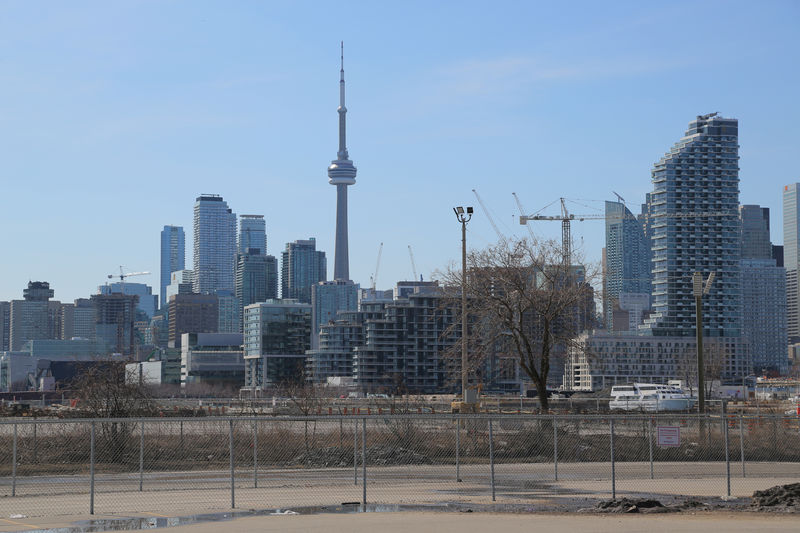By Moira Warburton
TORONTO (Reuters) - Alphabet's (O:GOOGL) Sidewalk Labs has provided more details on the technology it intends to use to develop a futuristic smart city in Toronto, which includes self-driving garbage cans and infra-red sensors to track foot traffic in stores, a document released by the company on Friday said.
Sidewalk, owned by the parent company of Google, released a 483-page document in response to criticism from an arm of the government-mandated body developing the project that called the initial proposal "frustratingly abstract."
Waterfront Toronto, the agency in charge of developing the waterfront area of Canada's biggest city, gave a tentative approval to the project two weeks ago after Sidewalk agreed to walk back many of its original proposals, including putting all data collected into an Urban Data Trust, which critics said would not be subject to adequate oversight.
The 12-acre project, close to Toronto's central business district, would feature adaptive street design and responsive sounds to help blind people find their way around, the document showed.
Sidewalk would implement a pay-as-you-throw system of garbage deposition, with volume sensors installed on each bin to indicate when it should empty itself, and optical sensors that would allow each self-driving bin to navigate through the public realm.
It said the majority of the services it is proposing have already been partially or fully implemented in an existing project in various cities around the world.
Sidewalk said the objective of this list is to "not only describe the 'what' and the 'why,' but also the 'how' and 'who' for each service.
"It also can help provide a clear, single source for what data collection activities are proposed — and importantly, what activities are not."
Sidewalk has said it will not sell data collected to third parties, or use it for advertising purposes. It will also not share personal information - one of four categories of data it defines - with third parties, including other Alphabet-owned companies, without explicit consent.
It will not use facial recognition, and 60% of services will not generate personal information.
Sidewalk's plan to monitor residents include tracking noise level in apartments to ensure tenants are adhering to an acceptable nuisance threshold, the document showed.
Waterfront Toronto cautioned that it is still reading through Sidewalk's document but said it was pleased to receive further details.
"Having worked with Sidewalk Labs to reach a realignment on important digital issues, we are eager to see how these discussions have been reflected," Kristina Verner, Waterfront's vice president of innovation, sustainability and prosperity, said in an emailed statement.
The project will now go through a formal evaluation and further public consultation before a final vote on Mar 31, 2020, by Waterfront Toronto's board of directors.
